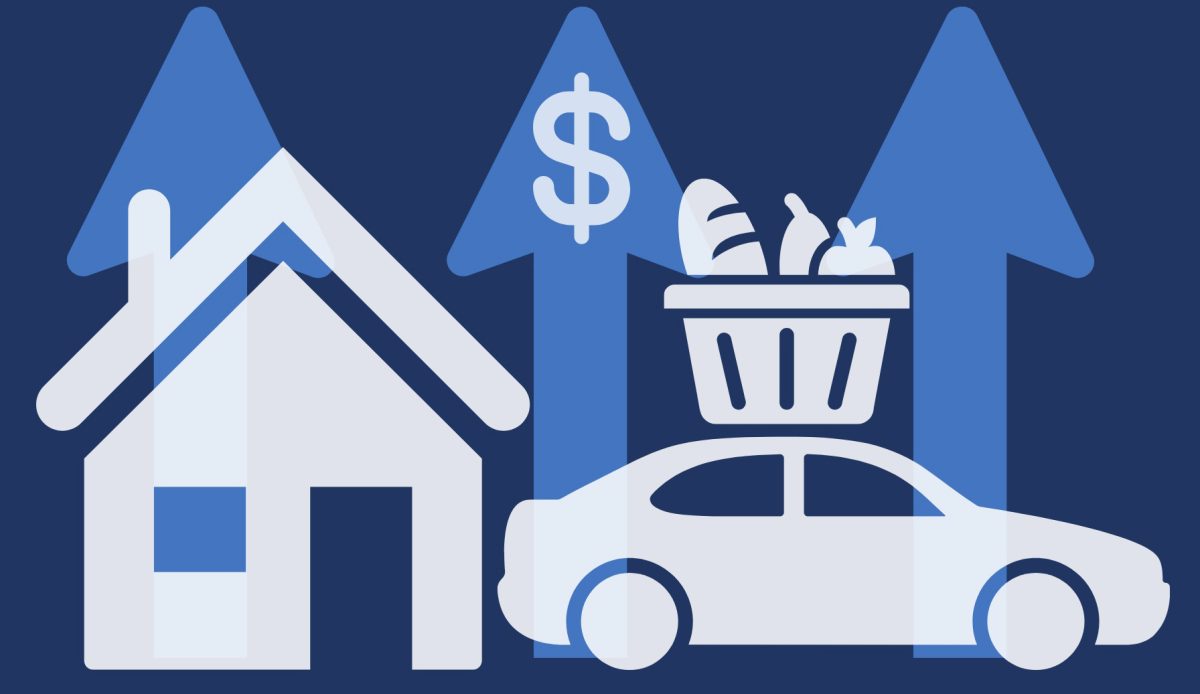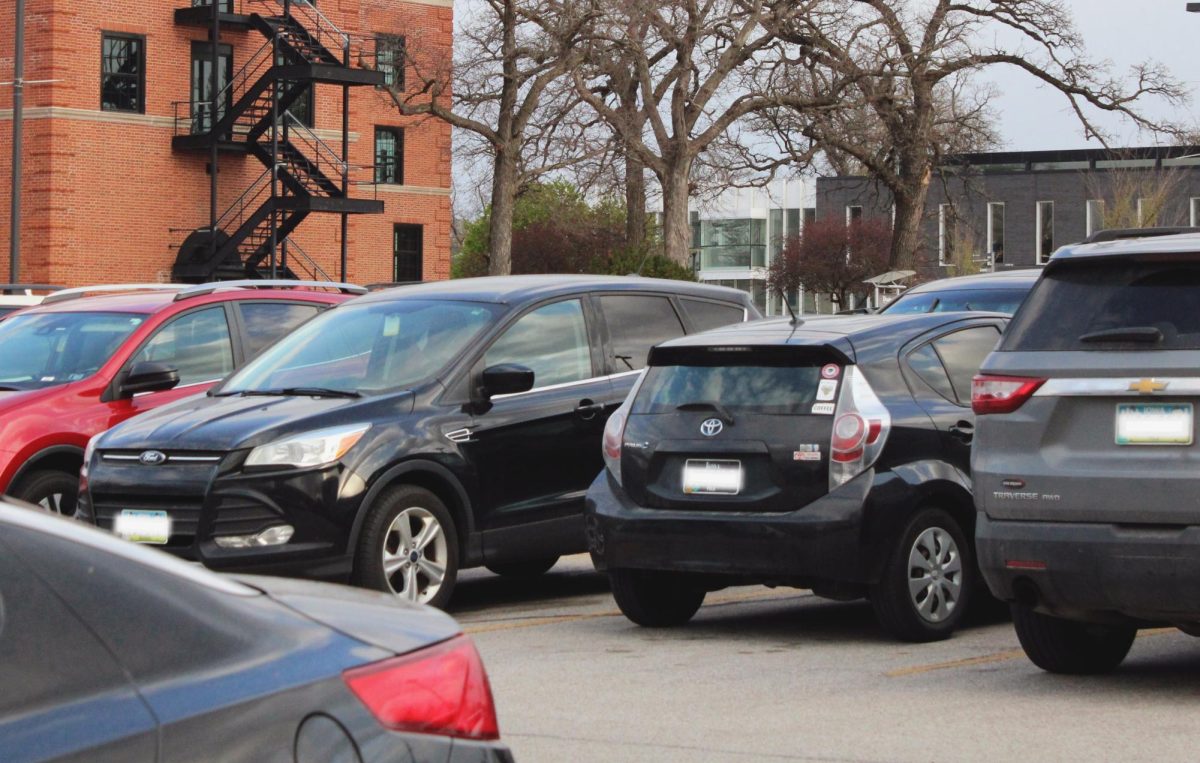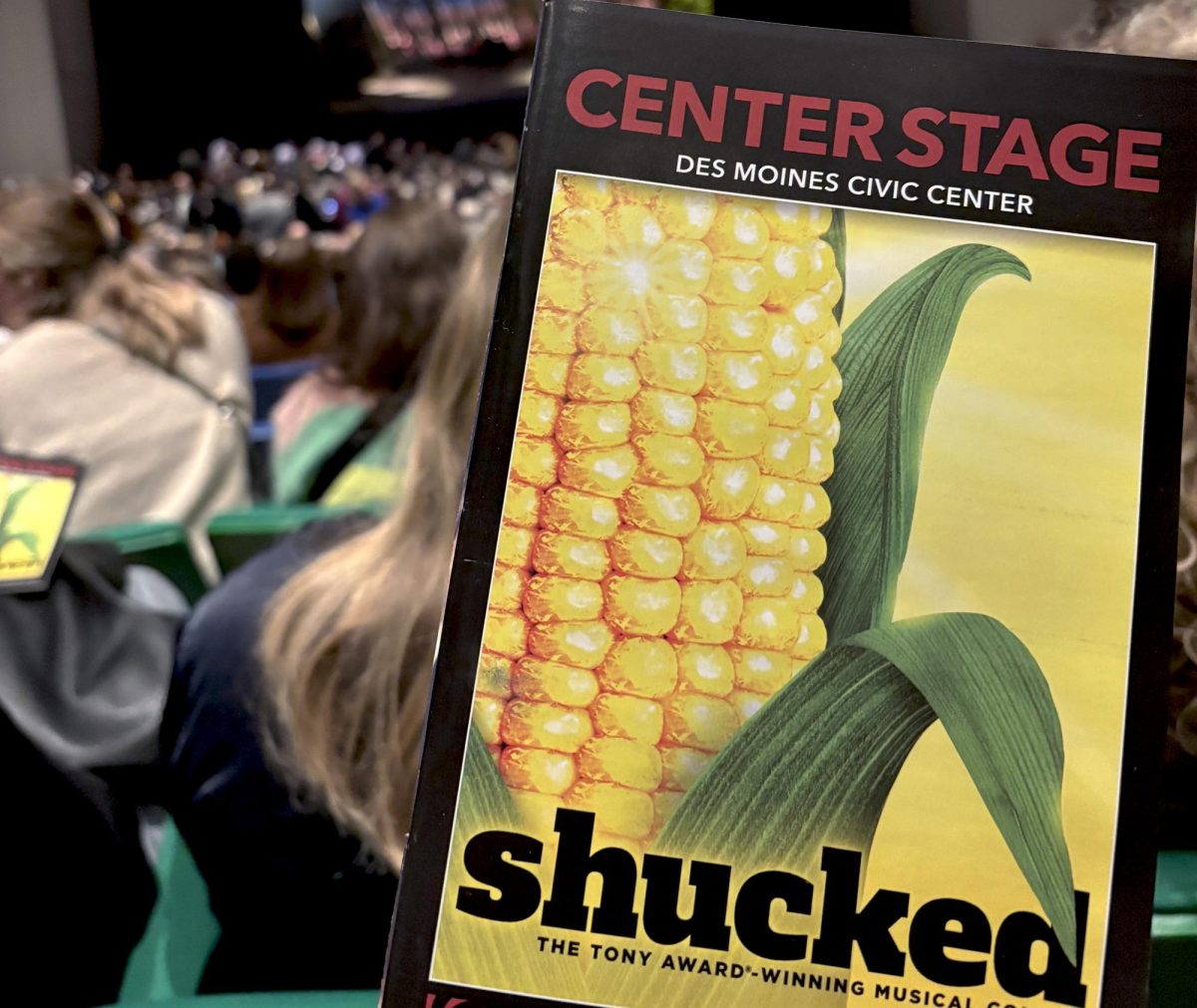With prices on the rise across the country for groceries, rent, tuition and more, simply getting by can be a challenge for young adults. Some recent Drake University graduates, as well as current Drake undergrads who live off campus, have had to adapt their lifestyles to get by in the current economy.
Since rent has increased dramatically over the years, even for the smaller apartments where many young people in the workforce live, a major concern for seniors is being able to afford rent due to low wages and less-than-ideal hours.
Nick Sidor, a fifth-year student who studies actuarial science and data analytics, lives off campus and has experienced firsthand how difficult it is to live with expected increases in rent while still in school.
“It’s difficult, especially for me personally, since I am part-time at my job right now, since I’m in school, and even then, it’s difficult to get a lot of hours just because it’s a very big supply and demand job,” Sidor said.
In addition to his struggles at work, Sidor has felt the impact of the increased costs of living in other aspects of life, including the cost of maintenance for his used car.
“It’s difficult to get parts for that car in the first place, but those prices have gone up dramatically,” Sidor said. “I’ve lost four tires since August, which is very unfortunate and very unlucky, but those prices I’ve seen steadily increase since my first tire that I lost.”
Bridgette Browning, who graduated in May 2024 and returned to Drake for graduate school, expressed similar concerns about making money in the low-paying psychology field while paying the rising costs of rent, utilities, food and tuition.
“I had just graduated with a psychology degree, so I already knew I was not really going to go into a high-paying job,” Browning said. “I’m still paying for school with loans, and to be able to cover my own finances, cover groceries, care, what have you, [and on top of that], I do have to get out extra loans because I simply don’t make enough to match increasing prices.”
Browning also noted the major shift in paying for school as an undergrad, when students have more aid opportunities, compared to paying as a graduate student, when students are typically living and handling their finances independently and have fewer aid opportunities.
“In graduate school, unless you are doing a very, very specific thing, there are no scholarships, and you just have to rely on loans or your own income,” Browning said. “And it’s possible to work 40 hours a week while being in school, but not great for your health.”
Kenyon Proby, another recent Drake graduate who currently works as an art and design teacher for an educational non-profit in Des Moines, explained how the current economy has changed the way he spends money both at home and at work. In addition to needing to budget more carefully for himself, Proby must also budget for craft materials and other things that he and other teachers need to use for their jobs.
“With everything happening, because we have a new CEO and [because] we’re looking at our budget, we [the nonprofit] have to basically be more frugal with how much we spend,” Proby said.
Due to rising prices, spending money on classroom materials is the last thing Proby wants to do if he doesn’t need to. He reuses materials when he can.
As the cost of living continues to rise, graduates know they need to be prepared for anything. Sidor is concerned about the country experiencing another recession.
“It’s going to be very difficult for years. I don’t know how long the recession will last, but these things will change over time,” Sidor said. “So I wouldn’t say that it’s easy or evident to change specific things that will stop this recession, because that’s just how the economy changes. But I would say that there are things that can definitely be done to slow it down or even reduce its impact on people.”
The possibility of further economic hardship has also impacted the way graduates are planning for their futures. For example, Proby is interested in attending grad school, but rising tuition costs combined with the general state of the economy have led him to reconsider the possibility.
“My fear is if I apply for school and I go to school, [the tuition cost is] gonna stack up in a way,” Proby said. “If I were to go back to grad school, I would pick a major or career [where] I can use my skills. But I feel like it’s going to be more expensive overall.”
To get through the struggles of being a young graduate in today’s economy, Browning believes that asking for help and prioritizing one’s own health is important.
“When you’re young and you’re just graduating, always ask for help,” Browning said.“You are a person before you are a student before you are a worker.”














